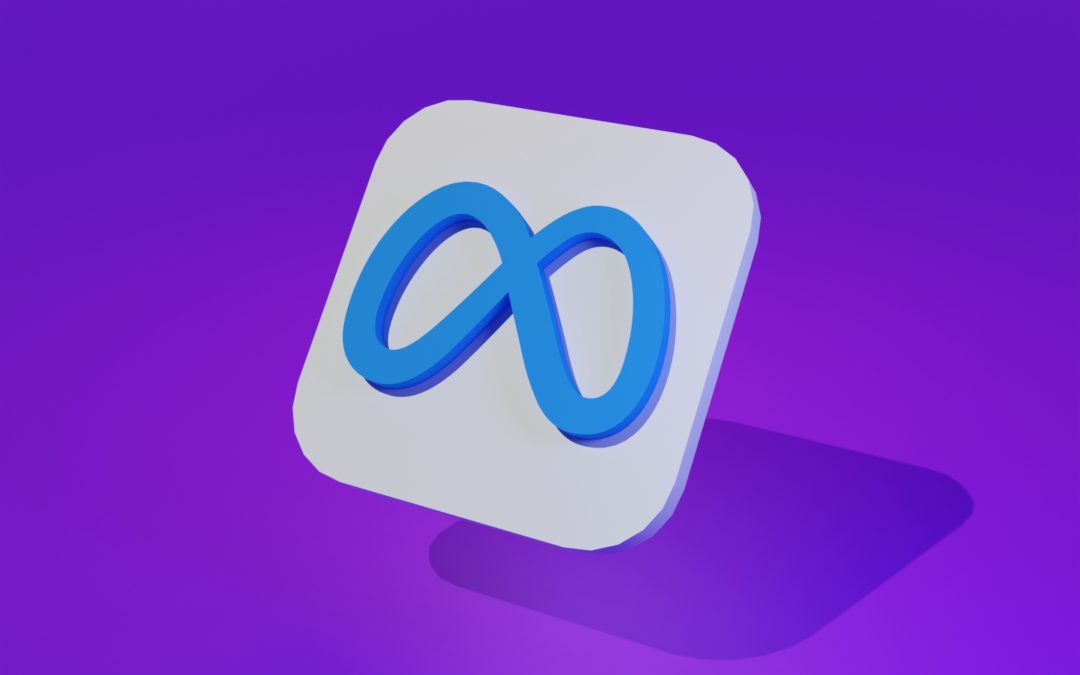Meta has proved itself to be something of an outlier in the A.I. race that kicked off last November with the public release of ChatGPT by San Francisco start-up OpenAI, which is now kind of unofficially owned by Microsoft.
Unlike Microsoft, Google, Apple, IBM, and other big-name tech companies, Meta eschews the top-secret approach to A.I. development in favor of making their A.I. platforms open source.
Specifically, the generative A.I. platform developed by Meta, LLaMA, is going to be open-source.
How Does Meta Benefit from LLaMA?
Basically, what Meta is getting for oversharing their potentially valuable “trade secrets” is not only guaranteed customer feedback, but even direct contributions to improving the platform LLaMA that is gained free of charge.
In the long run, this can provide a competitive advantage to Meta, because it allows them to develop a product that has been closely scrutinized by a customer base.
Additionally, the open source draw invites programmers to scrutinize the product. With Meta’s high profile, there is no doubt that some high-quality programmers outside of Meta will be interested in modifying the product.
This is like an even more valuable form of customer feedback, because it gains insights from specialists in coding who know exactly how to improve your product—and will make those improvements for you.
How Can Your Business Benefit from LLaMA?
The first major benefit is that it is completely free. Though ChatGPT is free, it is worth pointing out that ChatGPT Plus has a subscription plan.
With LLaMA, you get Meta’s strongest offering at no cost to you.
Another benefit is that anyone with the wherewithal to do so can actually modify Meta to your business needs.
This could involve creating a personalized LLaMA that is trained on your business’ data, so that it can create content that is specialized for your customer base, readymade to fit right onto your website’s blog.
Those are really the two main benefits for using LLaMA for your business. However, before you go and click download on the open-source version of LLaMA, you should familiarize yourself with some of the downsides to using Meta’s generative A.I. platform.
What Are the Risks of Using Meta’s Open-Source A.I.?
First thing’s first: If LLaMA was market-ready, then Meta would surely be charging for it.
At this moment, the trial phase is evident, and many kinks still require ironing out. What Meta is asking, basically, is for you to help iron out those kinks.
The troubling thing for a business owner is that it is unclear just what those kinks even are.
So, using LLaMA will be a process of trial and error, and some of those errors may be pretty significant.
Needing coding expertise to modify LLaMA to fit your business’ needs is yet another drawback.
If you do not have the expertise, then you really cannot take advantage of this feature.
What A.I. Is Available from Other Tech Companies?
We have seen numerous different approaches to A.I. development from the big tech companies, to the point where it feels as if these corporations have revealed quite a bit about their “personality”.
With Apple, you have the typical hush-hush perfectionism that has characterized the business for so long. No doubt they are working on sophisticated A.I. systems that can compete with ChatGPT, while paying close attention to how efforts like Meta’s are shaping up. Then, once Apple has its A.I. killer app, it releases it to the public.
Google is somewhere between Apple and Meta in its strategy. Google briefly released Bard to a select number of people before quickly rescinding the offer after getting plenty of negative feedback. However, Google has announced that its ambitions are still high and plans to release a whole suite of A.I. services, including a chatbot-integrated search engine, to select users by the end of the year (2023).
What About Microsoft’s A.I. Tools and Platforms?
Microsoft has been enjoying the ChatGPT association, and is working hard to create different A.I. platforms for its different offerings. From automated email assistants to next-gen versions of Microsoft Word writing assistants, Microsoft has demonstrated its willingness to quickly develop A.I. and release it to the public to gather feedback, though it does not go so far as to share its code.
Last and best is IBM, whose long-running Watson was recently announced to be getting an upgrade known as Watsonx.
Watsonx will offer everything that Meta’s A.I. purports to offer, particularly the customizability, only with greater sophistication and with market-ready quality.
A great feature of Watsonx is that you will not have to be a programming pro to customize the platform. Instead, you will easily be able to direct the use of Watsonx to fit your business’ needs.
Want more great A.I. solutions? Partner with Guardian Owl Digital today to get your head start in the A.I. race.
GO AI Articles
Guardian Owl Digital dedicates itself to helping businesses everywhere learn about and implement A.I.
For continuing your AI education and keeping up with the latest in the world of AI, check out our AI blog:
New Year, New AI: Here Are the Biggest Trends in AI Coming in 2023
How AI Could Have Helped Southwest Avoid Its Holiday Disaster
IBM Watson vs. Microsoft’s ChatGPT: The AI Chat Matchup of the Century
AI on the Stand: Explaining the Lawsuit Against the Microsoft Automated Coder
AI and You: What Determines Your AI Recommendations in 2023?
How AI Could Have Foreseen the Crypto Crash—(It Already Analyzes Exchange Markets)
Google’s Response to ChatGPT: What the Tech Giant Is Doing to Improve Its Own AI Efforts


Recent Comments